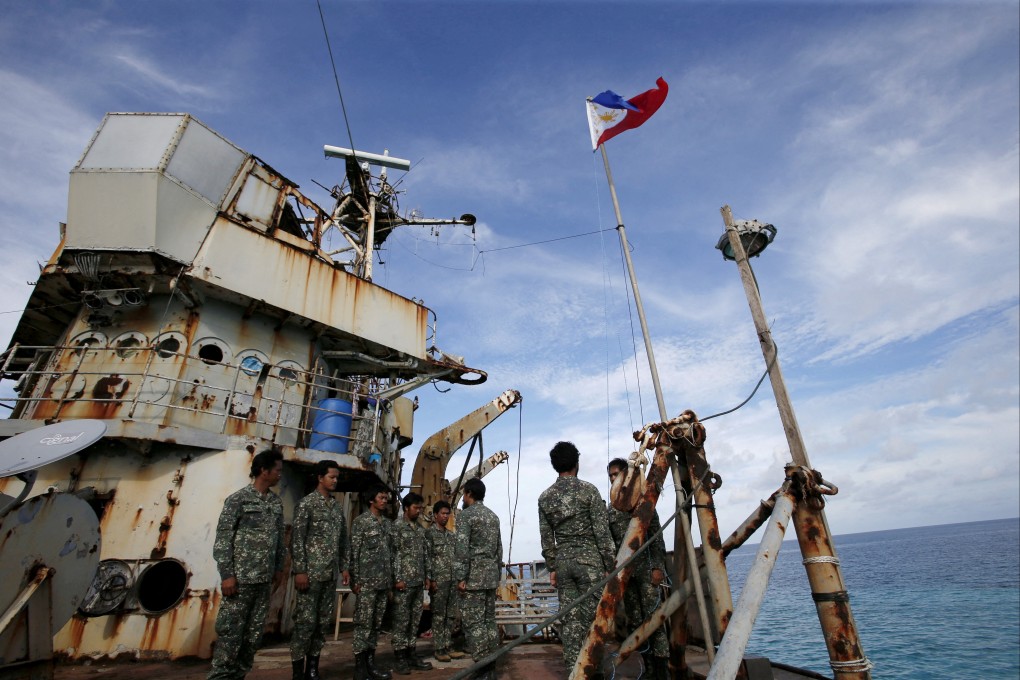Advertisement
Opinion | South China Sea: showdown at Second Thomas Shoal may be hard to avoid
- The recent confrontations between Chinese and Philippine coastguard ships near the shoal raise questions about whether a more heated conflict is inevitable
- Western powers committing to joint patrols of the area with the Philippines only ups the ante
Reading Time:3 minutes
Why you can trust SCMP
12

Last week, China, the Philippines and its US ally avoided a showdown at Second Thomas Shoal in the South China Sea. How was it avoided and what happens next?
On August 5, a Chinese coastguard vessel used a water cannon in an attempt to prevent boats being escorted by the Philippine coastguard from delivering supplies to troops on the BRP Sierra Madre that had been deliberately grounded on Second Thomas Shoal in the 1990s.
This was followed by widespread reporting and condemnation of China’s actions. Beijing also claims the submerged reef as part of its historic claim to much of the South China Sea.
The US has vowed to back the Philippines under its Mutual Defence Treaty if its public vessels – including those of its coastguard – are attacked. The Philippines announced it would try again – and did on August 22.
Given the history and context, this attempt to deliver supplies was a challenge to China. A confrontation seemed imminent. Something had to give – and it did.
Two Philippine coastguard vessels accompanied the boats carrying the supplies. A Chinese coastguard radio operator warned the Philippine coastguard vessels to leave or “bear full responsibility for all the consequences”. This threat was ominous because China’s coastguard is now authorised to “use all necessary means”, including weapons, to enforce China’s maritime claims.

Advertisement
